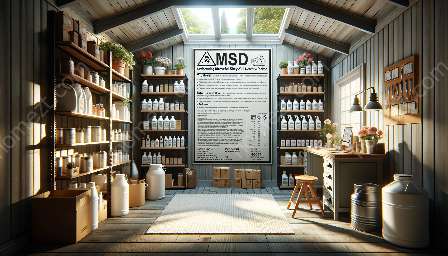Proper storage of hazardous materials is a critical component of maintaining a safe and secure home environment. Whether it’s household chemicals, flammable substances, or other dangerous materials, ensuring their secure storage is paramount to preventing accidents and protecting the well-being of everyone in the household.
The Significance of Safe Storage of Hazardous Materials
Hazardous materials, if not stored properly, pose significant risks to human health, the environment, and property. Improperly stored hazardous materials can lead to dangerous chemical reactions, fires, leaks, and potential exposure to toxic substances. This can result in severe health consequences, including respiratory issues, skin irritation, and even long-term health problems.
Furthermore, the mishandling of hazardous materials could lead to environmental pollution, causing harm to the surrounding ecosystem and wildlife. Therefore, it is crucial to recognize the importance of safe storage practices to prevent such adverse outcomes.
The Benefits of Regular Inventory Checks
Regular inventory checks play a vital role in maintaining the safe storage of hazardous materials. These checks ensure that all hazardous substances are properly accounted for, labeled, and stored according to guidelines and regulations. By conducting regular inventory checks, homeowners can identify any discrepancies, leakages, or expired materials, allowing for prompt and appropriate action to be taken.
Additionally, regular inventory checks provide an opportunity to assess the overall condition of the storage area, identifying any potential hazards or areas for improvement. This proactive approach not only mitigates the risks associated with hazardous materials but also contributes to a safer and more secure home environment.
Practical Tips for Maintaining a Secure Environment
Implementing a few practical tips can significantly enhance the safety and security of hazardous material storage:
- Store hazardous materials in a designated area that is well-ventilated and away from heat sources or direct sunlight.
- Use appropriate and durable containers specifically designed for the storage of hazardous materials, ensuring they are tightly sealed.
- Label all containers clearly with the contents and associated hazards, enabling easy identification and handling.
- Keep an updated inventory of all hazardous materials, including their quantities and expiration dates, and dispose of expired substances properly.
- Develop and communicate emergency protocols to all household members in the event of a hazardous material incident.
By adhering to these tips and conducting regular inventory checks, homeowners can maintain a secure environment and reduce the potential risks associated with hazardous material storage.



